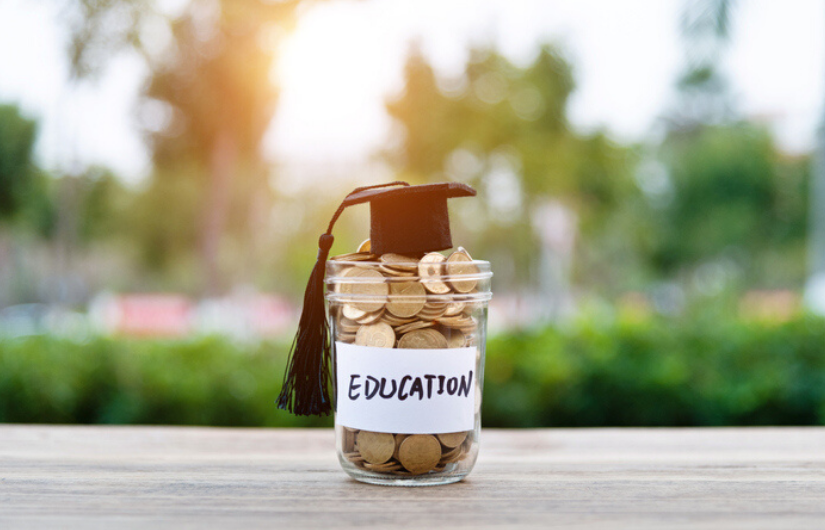Starting out in the world with a student loan to pay off just seems like a lot. You wonder, how do I pay off these student loans faster, especially with a 10- to 15-year payment plan? To someone in early adulthood, a decade seems like an eternity. Not only that, but student loan debt payments can take a sizable piece out of your budget.
However, paying off student loans in full early has its advantages. You’ll save thousands on interest payments and you’ll get to focus on other dreams and goals — like traveling to a new country, buying a house or saving for retirement.
With the help of this five-step guide, you can formulate a plan to pay off your student debt faster.
Step 1: Use an online calculator to make a plan
When it comes to paying off your education debt, having a plan and setting an intention can give you that first push and build momentum. Running different payment scenarios through our loan calculator can show you how to pay off student loans faster.
For starters, go to Minnwest Bank’s online calculator How long will it take to pay off my loan?
- Enter your loan details, including the total cost of your loan, interest rate and the monthly payment amount that was provided by the lender.
- If you plan to pay off capitalized interest that was accrued while you were taking classes, enter that amount in the box that says “down payment amount.” This will reduce what you owe.
- Select the box, “show payment schedule.”
Once you hit “compute” it will provide a month-by-month look at how much your monthly payment goes to principal (which pays down the borrowed amount), and how much you’re spending on interest.
Now, calculate the impact of paying extra each month. Increase the monthly payment field by $20, $50 or $100 and compute again. As you’ll see, this will shave many months and years off your payment schedule.
Are you stacked with other debts? Minnwest Bank’s online calculator — How soon can I eliminate my debts? — will help you make a plan.
Step 2: Pay off capitalized interest
Once you leave school, there’s usually a six-month grace period before it’s time to start making student loan payments. This is an opportunity to find out how much — if any — capitalized interest will be stacked onto your loan.
Paying your capitalized interest in a lump sum can lower your monthly payment. Let’s say this payment amounts to the $2,000 range. Finding a way to pay it off in a lump sum can free up another $30 or so a month on your monthly payments.
So if you can, start strong and pay the capitalized interest right away. When it lowers your monthly payment, pay the difference. These two things will get you to paid in full months or even years ahead of schedule.
Step 3: Investigate student loan forgiveness
Not many borrowers qualify for student loan forgiveness. In most cases, these offerings will eliminate a portion of the debt. Start by checking out these options so you can ensure you're not leaving money on the table.
Employer benefits
Companies that want to attract and retain top talent offer a robust benefits package. One benefit that’s starting to catch is student loan repayment. How it works is the employer makes an annual payment on the principal of your education debt, maybe $500, $2,000 or $5,000 a year.
Though this benefit is gaining traction, it’s not very common yet. In 2018, just 4% of employers offered it, but it doubled to 8% in one year. Many experts forecast its popularity to grow, now that an extension of the CARES Act makes these employer-issued student loan payments tax-exempt for employees for the next five years — possibly longer.
This may not eliminate your debt completely, but a benefit like this can get you to the finish line years ahead of schedule. If your employer doesn’t offer this benefit, keep your feelers out for other firms in your industry that do.
Minnesota student loan forgiveness
Certain professionals in Minnesota may be eligible for programs that repay portions of their student loan debt. Pilots, agriculture instructors and nurses who are willing to work in a rural nursing home may be eligible for annual payments on their education debts. If this is you, dig in to learn more about these programs and how they can help.
Closed school loan forgiveness
If the secondary learning institution you attended closed while you were enrolled, or up to six months after you withdrew without graduating, you may qualify for student loan forgiveness.
Step 4: Find the extra money
Extra money is critical to fast-tracking your student debt payoff. So make a rule for yourself: When extra cash comes your way, make sure you’re sending some of it to your student loan lender. Whether you decide it should be a third or half of your windfall, or the first $50, make it a habit to send it to your student loan principal.
Here are some ways extra cash can come your way, so you can pay down your student loan.
- Pay raises and bonuses
- Mileage checks from your employer
- Money you receive as gifts
- Extra income earned, whether it’s selling items or a side gig
- Tax refund
- A refund or rebate from a purchase
Here’s another way to funnel extra dollars to your student loans: Every time you get cash, set aside a 5- or 10-dollar bill, and siphon that into the principal.
Step 5: Refinance your student loans
Once you’ve been out in the world for a couple of years, refinancing is a smart financial move that can save a bundle on your student loans — especially if you need to consolidate private loans. Refinancing can help you shave time off your repayment schedule by locking you in to a lower interest rate. If you’re already paying ahead, refinancing can get you to the finish line even faster. How great is that?
When should you refinance your student loans?
- You’ve been working full-time for a year or more.
- You've never missed a student loan payment or any other debt payment, which is key to building a good credit score.
- You have taken out a federal or private loan.
- The lender has a lower interest rate than what you’re currently paying.
Over time, the extra money you divert to your student loan principal will add up. Start now, and you'll see a snowball effect later. The more the balance comes down, the more you’ll be motivated to pay your loans in full.
Personal service, expertise you can trust
At Minnwest Bank, we’re there for all your personal banking needs. Connect with a personal banker in your community. With our expertise, we can help you can make informed decisions so you can live the life you imagined.


